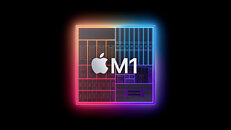- Joined
- Aug 19, 2017
- Messages
- 2,929 (1.05/day)
According to Dylan Patel of SemiAnalysis sources, Apple is moving its embedded cores from Arm to RISC-V. In Apple's Silicon designs, there are far more cores than the main ones that power the operating system and end-user applications. For example, embedded cores are present, and there are 30+ in M1 SoCs responsible for all kinds of workloads not related to the operating system. These tasks are usually associated with other functions such as WiFi/BlueTooth, ThunderBolt retiming, touchpad control, NAND chips having their own core, etc. They run their own firmware and power everything around the central cores that run the OS, so the whole SoC functions appropriately.
It appears that a lot of these cores are based on Arm M-series or lower-end A-series IP that Apple is currently looking to replace with RISC-V. Given that a large portion of software runs on the main big.LITTLE configuration, other secondary SoC tasks can migrate to a different ISA like RISC-V, with a small firmware adjustment. Given that these cores can be placed with custom IPs, Apple would save licensing fees if custom RISC-V cores were used. Additionally, developing firmware for these cores at an Apple engineering team size shouldn't be a problem. Of course, we have no information about when these custom cores will appear inside Apple Silicon. Even when they are used, no formal announcement is expected given that the main cores remain to be powered by Arm ISA, with everything else invisible to the end-user.

View at TechPowerUp Main Site | Source
It appears that a lot of these cores are based on Arm M-series or lower-end A-series IP that Apple is currently looking to replace with RISC-V. Given that a large portion of software runs on the main big.LITTLE configuration, other secondary SoC tasks can migrate to a different ISA like RISC-V, with a small firmware adjustment. Given that these cores can be placed with custom IPs, Apple would save licensing fees if custom RISC-V cores were used. Additionally, developing firmware for these cores at an Apple engineering team size shouldn't be a problem. Of course, we have no information about when these custom cores will appear inside Apple Silicon. Even when they are used, no formal announcement is expected given that the main cores remain to be powered by Arm ISA, with everything else invisible to the end-user.

View at TechPowerUp Main Site | Source






 So yeah it's worth the hustle.
So yeah it's worth the hustle.